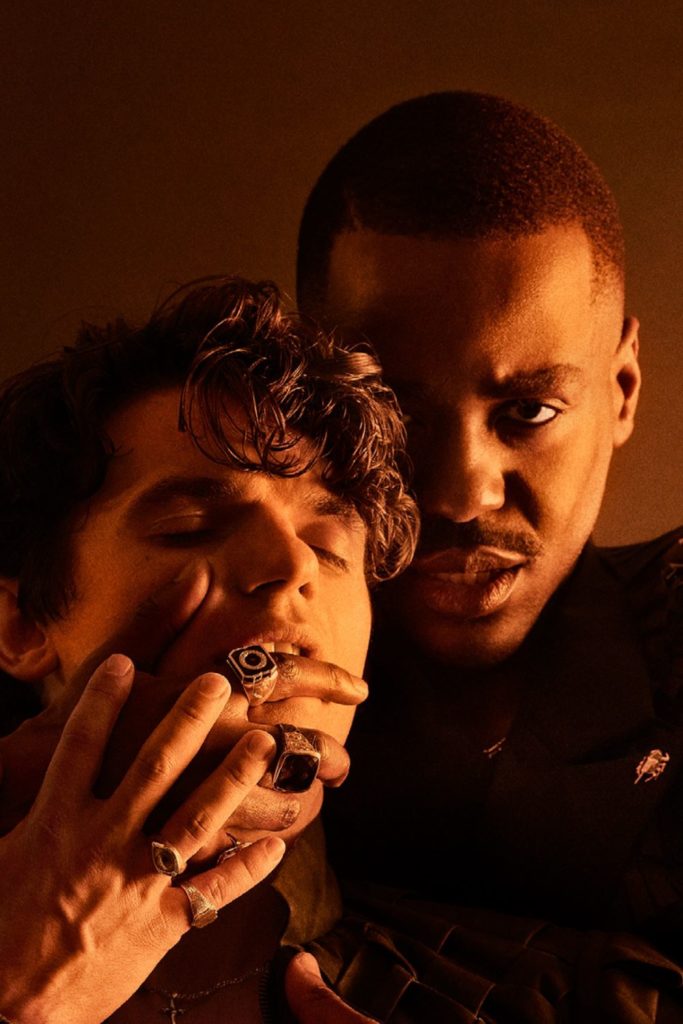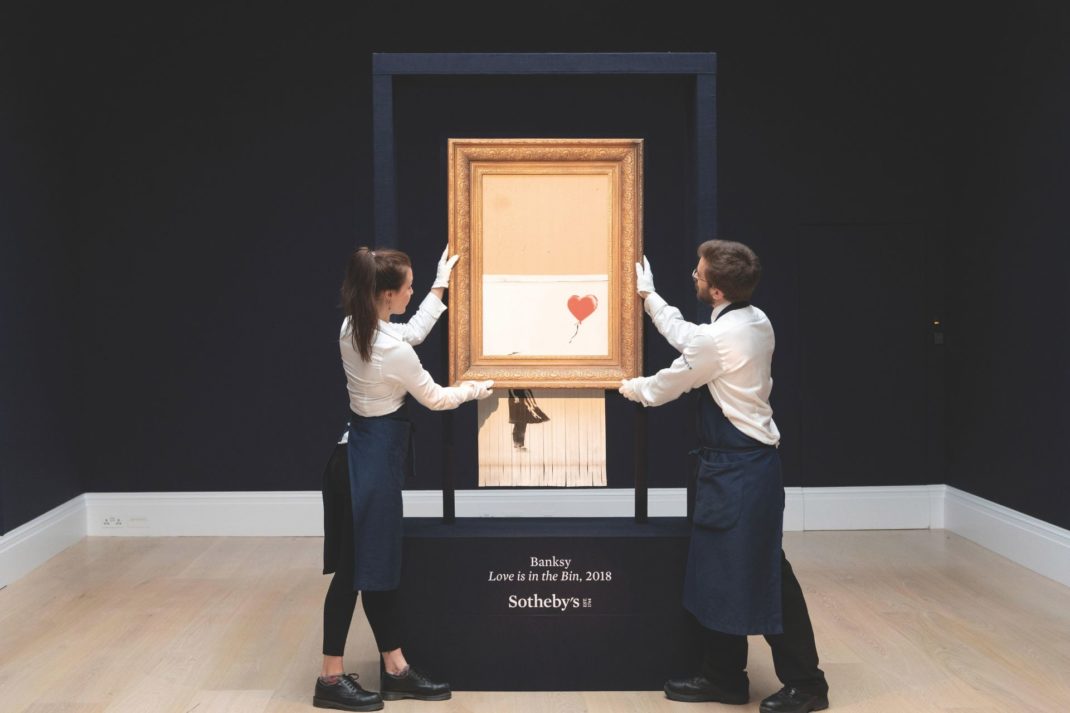Pandora Sykes: ‘There’s Not One Way to Lead a Good Life’
By
4 years ago
The writer and podcaster on self-optimisation, the business of wellness and re-entry anxiety
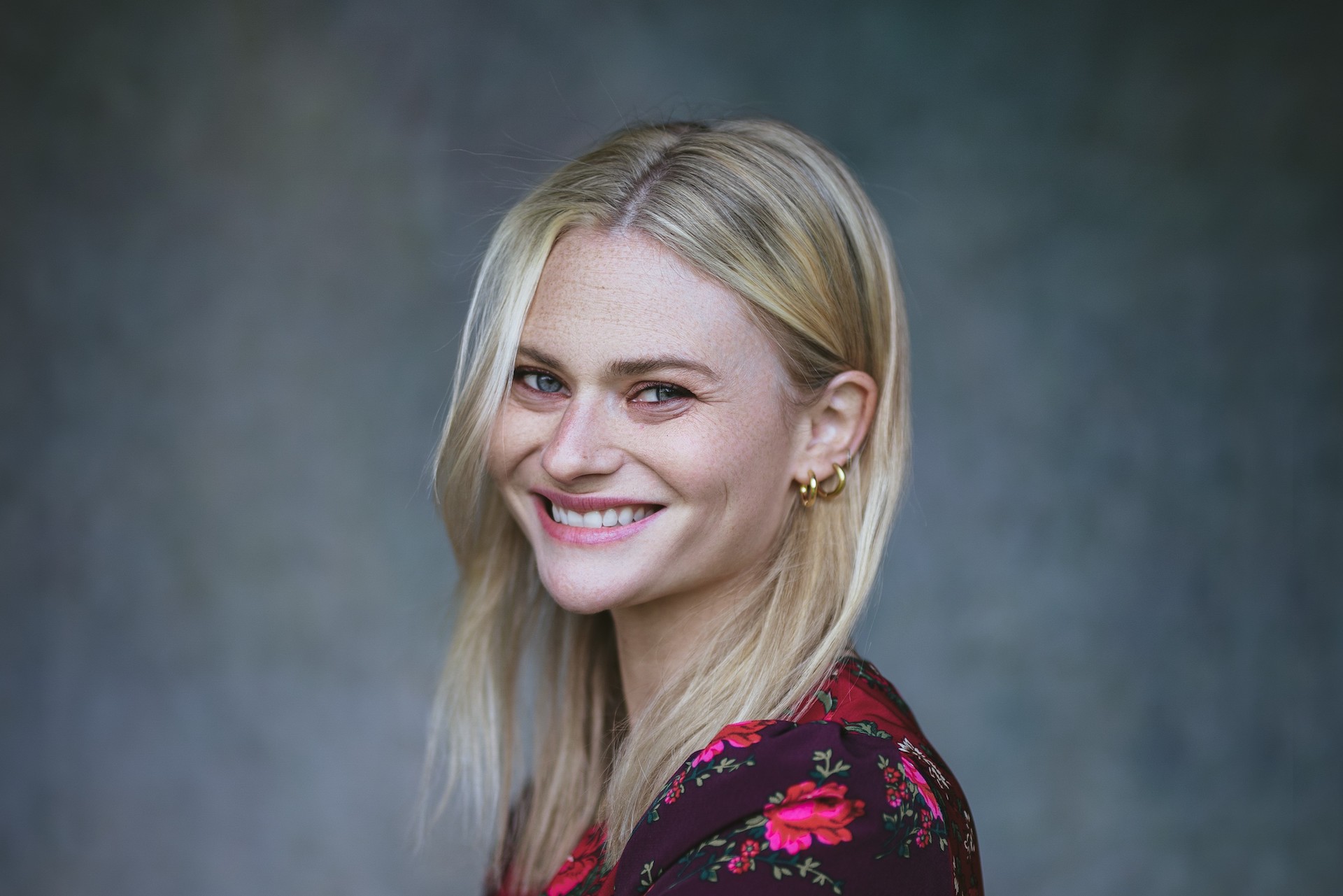
Pandora Sykes is a writer, podcaster and author of How Do We Know We’re Doing It Right?, a collection of essays on modern life. We sat down with her to talk about her life lessons, why we’re all so preoccupied with ‘fixing’ ourselves, and what success really means to her – outside the optics of Instagram.
Main image: © Alexandra Cameron
Pandora Sykes’s Life Lessons
You talk about the idea of ‘self-optimisation’ in your book, How Do We Know We’re Doing It Right? What can people learn from writers like yourself without putting pressure on themselves to ‘fix’ their lives?
I think it’s less about specific things – do this and your life will improve by X per cent or do this and you will be X percent happier. I think it’s more about exploring ways of doing stuff differently.
And I’m guilty of this, but also of feeling like, ‘Oh, I’m a certain type of person. And therefore this is how I do stuff.’ You can be a different type of person, you know. You are, for the most part, in control of the way you live your life and how you think about life. How you approach things is almost more important than the way you do things.
It’s less about prescribing a lifestyle, or a way of doing stuff, and more about asking questions. This is what I wanted to do with my book – to just ask questions about why you’re making the decision that you’re making, to draw attention to the fact that choices are not made in a vacuum, they’re made in a context and particularly in modern life they’re made in a loaded context. And also, to lay out the many different ways that things can be done. So maybe it will help you feel you have more wiggle room than you think; that there’s not just one way to do things, there’s not one way to lead a good life.
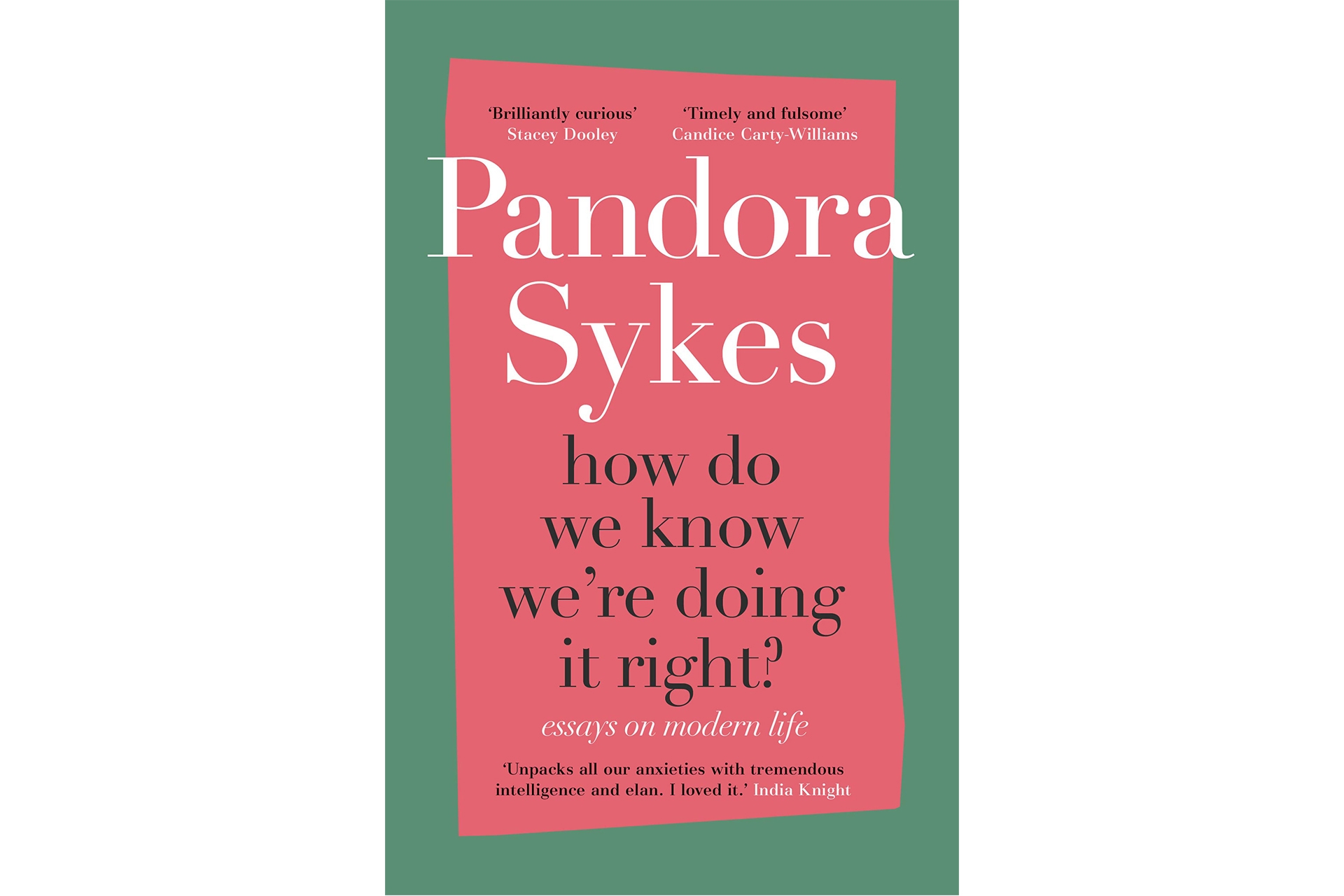
Why are women so preoccupied with ‘fixing’ themselves?
I think it’s ancient [the idea] that women should always be improving and polishing, because for a long time being decorative was their full-time job. It was always about who can be shiny and nicer and more accommodating.
And we must remember that consumer culture exists to sell things to people. And how do you sell things to people? By making them feel like they’re lacking something. And so that’s where wellness comes in: a lot of us talk about feeling broken and burnt out and wellness zooms in to patch us up again.
But that isn’t a new idea. Since the 19th century there’s been this idea of neurasthenia, which means that society is operating with this base level of anxiety, and people aren’t feeling like they’re at their optimum selves.
And don’t get me wrong, I think it’s important to feel good in your body. As someone with young children I often feel don’t feel great in my body, and I absolutely want to feel better in my body. But I think there’s a difference between wanting to feel better in yourself and subscribing to the notion that wellness can change the world. Even the definition of “wellness” has really changed.
In the Sixties Halbert Dunn came up with [the idea of] wellness as something that benefits society: you’re only as well as the least well member of society. Essentially, it was like social welfare. And we’ve individualised that and shrunk that down and it has become something quite elite, and a business. The problem I have with wellness is that, as Amanda Mull puts it, it’s only accessible to the wellest among us.
So wellness can be a distraction away from systemic stuff. And wellness is only really wellness if you take say, the floatation tank or the cryo chamber or even just the yoga lessons, and you make them free for everyone, so everyone can access this higher level of being.
How are you finding it post-lockdown? What advice would you give someone struggling with anxiety about ‘doing it right’ as the world opens up again?
This could apply to any time, not just post-lockdown, but try to – and I know it’s not easy to do – drop this idea of living your best life.
If you’re feeling anxious about [re-opening], just do baby steps. You’re still allowed to go for a walk in the park, so just do that. And I think there will be that feeling of grabbing life by its horns because we know how easily it can all be taken away. And rather than thinking that you must run at life in order to perform it in a certain way, think about what makes a contented life because we know how lucky we are and how precious it is to have those things back again.
Personally, I’m really enjoying it. I’m not someone who missed raves and festivals and weddings, so just being able to go for dinner inside or outside is perfect for me. It’s given me such a spring in my step and reminded me how much you need to fill up on the energy that other people give you. I’m someone who needs a lot of time on my own, but that makes me realise even more how valuable the presence of someone else is to give you a shot of energy.
10 Lessons We Learnt in Lockdown
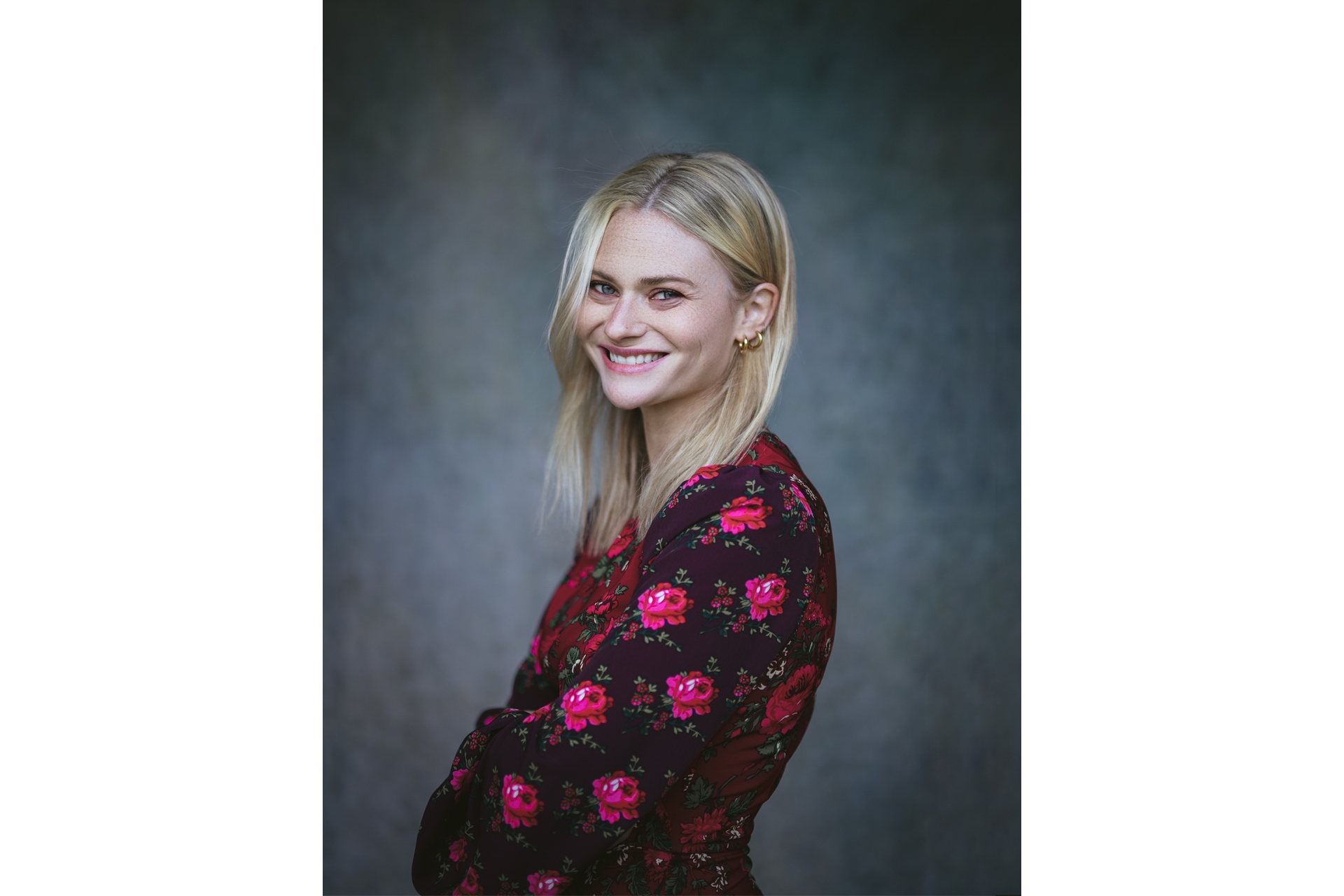
© Alexandra Cameron
A lot of people would say that you’re someone who’s absolutely getting it ‘right’ in terms of your career and outward success. What do you think about success? What do you think about being held up as a role model of success?
It’s just a reminder that things are never the same outside as inside. I’ve been very lucky with my work: I’ve been able to do work I want to do and for that to be listened to or engaged with, and for me to be paid for that work. So I feel very lucky.
But I am not someone that is very good at going, ‘Oh, that was a success. Let me enjoy that moment.’ And I wrote about that in the book, about something called arrival fallacy. And so now I try and really enjoy the process rather than think what it might look on the outside.
I have been really interested in playing with ideas of what success is. And I really think that success, to me, is about your personal life as much as your professional. Is your family well – are you being a good daughter, sister, friend? Are you taking the time to make your home a place that reflects you and the way you want to live? How are you raising your children?
I really try and look at success as how it makes me feel, rather than what it looks like on the outside. I had postnatal depression last summer when my book was coming out. And it probably looked like ‘party, party, party.’ And you know, that’s not how it felt at all. It’s such a cliche, but someone’s outer casing is not necessarily how they feel inside.
Would you say it’s another symptom of a social media age, that what we put out to the world is not necessarily the reality?
I don’t use social media as an artifice, but I’m not comfortable sharing my lowest moments on it. Because I just wouldn’t trust the internet with that. That’s just a personal thing. I don’t think there should be a pressure on women to turn themselves inside out, unless that makes them feel better. So no, I don’t tend to share. I might write about them, but I wouldn’t really share visuals of those really hard times. I have a less engaged relationship with social media: I like to dip in and out of it, but I don’t use it to narrativise my life, as that would absolutely make me feel really anxious.
Pandora Sykes’s Favourite London Haunts
Women writers and journalists are often asked to turn their lives into the story. How do you deal with that?
I’m always asked for more personal detail, but I resist that because I think it’s possible to create meaningful work without doing that. And if people can’t find value in my work without me doing that, then perhaps my work isn’t for them.
You say in the book you advocate for more ‘self-respect’ that ‘self-care’. What do you do to respect yourself?
It’s a process. One of the ways in which I’m trying to have a bit more self-respect is with boundaries. I feel quite a strong sense of duty, and I’m quite a good schoolgirl. I don’t like leaving emails unanswered, and if something’s asked of me, I feel like I should do it. But that’s just not possible for everyone, particularly if you have care obligations, or you have young children. So I’m now trying to have a bit more respect for my time. I used to stuff it full to breaking point so that I was always rushing around at breakneck speed, and I never had enough hours in the day. It was just so exhausting getting through it all. So now I’m trying to have a bit more respect for my time, and therefore my value and understanding that, as painful as it is, you cannot distill yourself into everything. I’m only one person. And I’m only one mother, and I’m just trying to do a good enough job. I think being good enough is a big part of self-respect for me.
View this post on Instagram
Do you believe in regret?
I always find it quite funny when people say they have no regrets, and I’m like, ‘really?’ I have lots of regrets, but I think they’re important as they remind you not to do certain things again.
I’ve got way better at not looking forward in the last year. For me, and maybe other people who are control freaks or have anxiety, trying to live in the present is the best self-care of all. If you think, ‘okay, all I can control is how I behave today’. You can’t control literally anything beyond that; you definitely can’t control the world; you can only control how you react to it. That I find a very good thing to practise.
Listen to Pandora Sykes on C&TH’s House Guest Podcast
You say in the prologue of How Do We Know We’re Doing It Right that you’re trying to follow the advice of Josie George, who writes that, ‘I have learned not to treat life as a waiting room. Instead, I look at this new day in front of me.’
That’s an amazing phrase – instead of thinking: ‘what’s next, what’s next’ or ‘things will be better when I do this’. Looking ahead is important to keep you hopeful, but if you are living in your future skin, you are not doing justice to your present self.
What does this mean for your day-to-day life and your hopes for your career?
I don’t have like a five-year plan – I think it’s impossible. Five years ago, I was a fashion columnist at the Sunday Times, so my career is in such a different place now. I have things that I’d love to do. And I have things that I enjoy doing that I would love to learn more of. That’s literally the only way I look at it. I think of doing a project per quarter. So I’m working on a documentary for Radio 4 at the moment, and next quarter I’m going to be making another series of Doing It Right, which is a podcast I did last year right in which I interview experts about various fascinating things. So that’s how I think in a work sense.
You said in the past that you brought [Pandora’s hit podcast] The High Low to a close because you wanted to end on a high before people got tired of it. Is this something you often worry about as someone in the public eye?
I always want to move on from something before it’s asked of me. I did The High Low for four years, which is the longest I’ve ever done a job. I also was at the Sunday Times for four years. And I loved that job and it was a great job and a lot of people told me I was mad when I left, but I had it in my head that now was the time to move on.
I play life quite safe, but I suppose one way that I could be seen to take risks is I’m very much okay leaving stuff at its peak. And I do trust my instinct on when it’s time to move on. And it didn’t scare me leaving the The High Low so much, although there was an inevitable negotiation period afterwards as my identity was no longer the The High Low.
But the lovely thing is that it will always be part of my identity, it will always be part of my work, and it will always be part of my history. And, you know, I’m lucky that it changed my work – I wanted to move in a different direction and The High Low allowed me to do that. It gave me so much that I don’t feel like I’ve lost anything.
How Do We Know We’re Doing It Right? is out now
READ MORE:

